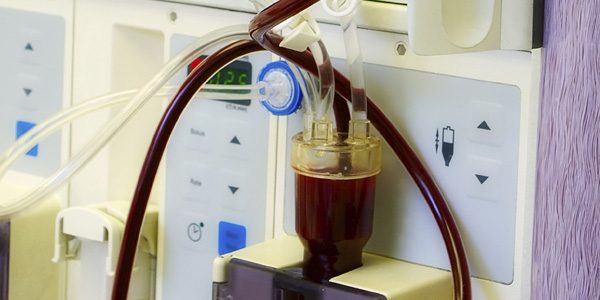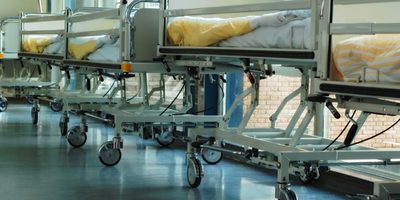
New Director of Renal and Metabolic research
Already juggling three jobs and being a father of four, it is a surprise that Associate Professor Martin Gallagher also has the time to head up The George Institute's Renal and Metabolic Research division. Being inspired everyday to help patients is what drives his commitment.
What does your job involve?
Assisting, leading and developing research projects and ideas to address the major challenges in kidney disease, a major contributor to the economic and social burden of disease in Australia and worldwide. I also provide clinical care to patients with kidney disease at Concord Repatriation and General Hospital in Sydney and teach and train medical students and junior medical staff at The University of Sydney.
What inspires you in your work?
The patients we care for and the people I work with, and their ability to deliver high quality clinical and research outcomes.
What are your research goals?
To improve the poor outcomes of patients with kidney disease so that they live longer and with the least possible disability, by delivering healthcare in better and smarter ways. I am particularly interested in using existing healthcare resources to understand the effects of existing processes of care and how changes in that care can influence patient outcomes.
What are you currently working on?
Research that looks at how health record data linkage tools can help measure health outcomes and shape clinical practice. I'm also looking to understand treatments that are most likely to benefit patients with acute kidney injury.
What is the potential impact of your research?
Over time we hope to develop treatments of proven benefit to patients with acute kidney injury as it has a mortality of up to 60%. Our data linkage work will help develop methods to affordably measure hospital outcomes and highlight practices that are both costly and harmful, in order to shape healthcare in more affordable and effective ways.
What is an example of a highlight from your research?
The delivery of the RENAL Study and the development of an extended follow up of the participants of this study. This was an important study in understanding the treatment of acute kidney injury and our extended follow up work has been novel and helped develop new skills within The George Institute and the participating units.
What else do you enjoy about your work?
The people. This is essential to the development of healthcare nationally and globally, and few organisations are equipped to contribute so significantly to this challenge.



